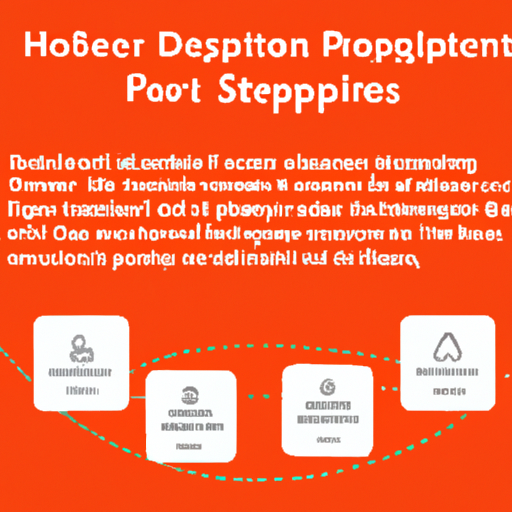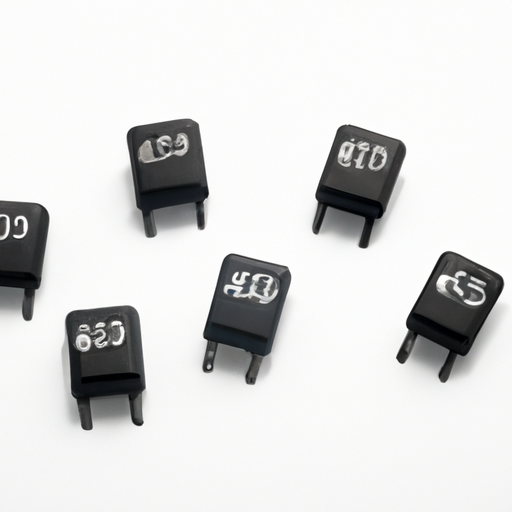What industries are the application scenarios for hot-selling inventory deposits included?
What Industries Are the Application Scenarios for Hot-Selling Inventory Deposits Included?
I. Introduction
In today's fast-paced market, businesses across various sectors are constantly seeking ways to optimize their inventory management. One innovative approach that has gained traction is the concept of hot-selling inventory deposits. These deposits refer to the strategic allocation of inventory for products that are in high demand, allowing businesses to respond swiftly to market fluctuations and consumer preferences. Understanding the application scenarios for hot-selling inventory deposits is crucial for companies aiming to enhance their operational efficiency and customer satisfaction. This blog post will explore the industries where these inventory strategies are most effectively applied, including retail, e-commerce, manufacturing, food and beverage, technology, and automotive.
II. Retail Industry
A. Overview of Retail Inventory Management
The retail industry is characterized by its dynamic nature, where consumer preferences can shift rapidly. Effective inventory management is essential for retailers to ensure that they have the right products available at the right time. Hot-selling inventory deposits play a pivotal role in this process.
B. Application of Hot-Selling Inventory Deposits
1. **Seasonal Trends**: Retailers often experience seasonal spikes in demand, such as during holidays or special events. By utilizing hot-selling inventory deposits, retailers can stock up on popular items ahead of time, ensuring they meet customer demand without overstocking less popular products.
2. **Consumer Demand Fluctuations**: The ability to quickly adapt to changing consumer preferences is vital. Hot-selling inventory deposits allow retailers to allocate resources to trending products, minimizing the risk of stockouts and maximizing sales opportunities.
C. Case Studies
1. **Successful Retailers Utilizing Inventory Deposits**: Companies like Target and Walmart have effectively implemented inventory deposit strategies, allowing them to respond to consumer trends and seasonal demands efficiently.
2. **Impact on Sales and Customer Satisfaction**: By ensuring that popular items are readily available, these retailers have seen increased sales and improved customer satisfaction, as shoppers can find what they want when they want it.
III. E-commerce Sector
A. Growth of E-commerce and Inventory Challenges
The e-commerce sector has experienced exponential growth, leading to unique inventory management challenges. With consumers expecting fast delivery and a wide selection of products, managing inventory effectively is more critical than ever.
B. Role of Hot-Selling Inventory Deposits
1. **Real-time Inventory Tracking**: E-commerce platforms can leverage hot-selling inventory deposits to track inventory levels in real-time, allowing for quick adjustments based on consumer behavior and sales data.
2. **Fulfillment Strategies**: By strategically placing hot-selling inventory deposits in various fulfillment centers, e-commerce companies can reduce shipping times and costs, enhancing the overall customer experience.
C. Examples of E-commerce Platforms
1. **Amazon and Inventory Management**: Amazon has mastered the art of inventory management, utilizing hot-selling inventory deposits to ensure that high-demand products are always in stock, leading to increased sales and customer loyalty.
2. **Other Notable E-commerce Success Stories**: Companies like Zappos and Wayfair have also adopted similar strategies, allowing them to maintain a competitive edge in the crowded e-commerce landscape.
IV. Manufacturing Industry
A. Importance of Inventory in Manufacturing
In the manufacturing sector, inventory management is crucial for maintaining production efficiency and meeting customer demands. Hot-selling inventory deposits can significantly enhance this process.
B. Application of Hot-Selling Inventory Deposits
1. **Just-in-Time (JIT) Inventory Systems**: Many manufacturers adopt JIT systems to minimize excess inventory. Hot-selling inventory deposits allow them to keep essential components on hand while reducing waste.
2. **Managing Supply Chain Disruptions**: In times of supply chain disruptions, having hot-selling inventory deposits can help manufacturers maintain production schedules and meet customer demands without delays.
C. Case Studies
1. **Manufacturers Adopting Inventory Deposits**: Companies like Toyota have successfully implemented inventory deposit strategies, allowing them to respond quickly to changes in demand and supply chain challenges.
2. **Benefits Realized in Production Efficiency**: By optimizing their inventory management, these manufacturers have seen improvements in production efficiency and reduced costs.
V. Food and Beverage Industry
A. Unique Inventory Challenges in Food and Beverage
The food and beverage industry faces unique inventory challenges, particularly concerning perishability and seasonal demand. Hot-selling inventory deposits can help address these issues effectively.
B. Hot-Selling Inventory Deposits in Action
1. **Managing Perishable Goods**: By utilizing hot-selling inventory deposits, food and beverage companies can ensure that popular items are available while minimizing waste from unsold perishable products.
2. **Seasonal Product Demand**: Many food and beverage products experience seasonal spikes in demand, such as holiday-themed items. Hot-selling inventory deposits allow companies to prepare for these fluctuations.
C. Case Studies
1. **Successful Food Brands Utilizing Inventory Deposits**: Brands like Coca-Cola and Nestlé have effectively managed their inventory through strategic deposits, ensuring that they can meet consumer demand without excess waste.
2. **Impact on Waste Reduction and Profitability**: By optimizing their inventory management, these companies have reduced waste and improved profitability, demonstrating the effectiveness of hot-selling inventory deposits.
VI. Technology Sector
A. Rapid Product Development and Inventory Needs
The technology sector is known for its rapid product development cycles and ever-changing consumer preferences. Effective inventory management is essential for success in this competitive landscape.
B. Application of Hot-Selling Inventory Deposits
1. **Managing New Product Launches**: Hot-selling inventory deposits allow tech companies to stock up on new products ahead of their launch, ensuring they can meet initial demand.
2. **Adapting to Market Trends**: By monitoring consumer preferences, tech companies can adjust their inventory deposits to align with emerging trends, maximizing sales opportunities.
C. Examples of Tech Companies
1. **Apple and Inventory Management**: Apple is renowned for its meticulous inventory management, utilizing hot-selling inventory deposits to ensure that popular products like the iPhone are always available.
2. **Other Tech Giants and Their Strategies**: Companies like Samsung and Microsoft have also adopted similar strategies, allowing them to remain competitive in the fast-paced tech market.
VII. Automotive Industry
A. Inventory Management in Automotive Manufacturing
The automotive industry relies heavily on effective inventory management to ensure that production runs smoothly and customer demands are met.
B. Role of Hot-Selling Inventory Deposits
1. **Managing Parts and Components**: Hot-selling inventory deposits allow automotive manufacturers to keep essential parts on hand, reducing the risk of production delays.
2. **Responding to Market Demand**: By monitoring consumer preferences, automotive companies can adjust their inventory deposits to align with market demand, ensuring they have the right vehicles available.
C. Case Studies
1. **Automotive Companies Leveraging Inventory Deposits**: Companies like Ford and General Motors have successfully implemented inventory deposit strategies, allowing them to respond quickly to changes in consumer demand.
2. **Impact on Production and Sales**: By optimizing their inventory management, these companies have seen improvements in production efficiency and increased sales.
VIII. Conclusion
In conclusion, hot-selling inventory deposits play a vital role across various industries, from retail and e-commerce to manufacturing, food and beverage, technology, and automotive. By understanding the application scenarios and benefits of these inventory strategies, businesses can enhance their operational efficiency, respond to market fluctuations, and ultimately improve customer satisfaction. As inventory management continues to evolve, companies that embrace innovative approaches like hot-selling inventory deposits will be well-positioned for success in the future.







